On Being Single and Spiritual – 7 Muslim Women Share Their Journey
by Imrana Mahmood in Culture & Lifestyle on 14th February, 2024

Conversations around Muslim women who lead single lives seem to trigger many people. On one hand, Muslims – especially Muslim women – are reminded that marriage is half of the deen and, on the other hand, instead of treating it as just one pathway of growing closer to Allah, we insist that marriage – or the absence of it – defines all facets of life.
Based on recent statistics by the ONS, the average age for marriage amongst heterosexual couples in the UK, is 33.2 years for women and 35.3 years for men. A Pew Research report shows that 58% of Muslims aged 30-49 years are married, compared to only 17% of 18-29 year olds which suggests that Muslims are getting married later in life.
However, singledom need not be equated with incompleteness. Seven Muslim women, from their 20s to 50s, share their journey of single life:
“Being single has allowed me to cultivate a deep connection with myself, fostering personal growth and self-discovery.” – Shabnam*, early 20s
Shabnam is passionate about literature, writing, theatre and solo adventures. She indulges in different hobbies to gain diverse perspectives of life and an in-depth understanding of both her religion and the world at large.
She thinks the term ‘single’ is a simple identifier for someone who is not in a relationship and, personally, though she believes in the sacredness of marriage, she enjoys being single.
“Choosing to stay single harbours a lot of judgement from others, especially when you mention that you are content with the absence of a significant other.” She started experiencing negative attitudes about being single as soon as she surpassed her late teens, when people warned her of feelings of isolation if she remained uncoupled. We know, however, that language can be manipulated to perpetuate problematic societal expectations: being alone is not necessarily the same as being lonely.
She has struggled when it comes to her own family as well, especially being the eldest of her siblings. It has been difficult to persuade them of the pros of being single because they hold a strong belief in marriage being the sole marker of success. Whilst she understands their reasoning and fears, she feels they do not reciprocate the same commitment to understanding her choices. Now, she simply removes herself from conversations that include uncompromising opinions on women. “I don’t want to be a part of a conversation that allows people to judge people’s lifestyle choices. It is very exhausting.” Regardless of these judgements, she has readily embraced her singleness and appreciates not having any responsibilities towards another person. She feels “life is more fun and exciting without someone depending on you constantly.”
Shabnam has learnt from other women’s experiences who regretted getting married early. This cemented the idea of raising her standards and vouching to never let go of who she is once she commits to a relationship. “When the right person does come, where our values are aligned, that will probably be the only time I will pursue a relationship – I do not want my life to be another cautionary tale for other women to use as a life lesson – I have learnt to do what brings me fulfilment.”
The conscious delay of marriage can give people a stretch of time to work on themselves and for Shabnam, who grew up a people-pleaser and often neglected her own needs, this opened up a path for her to focus on her personal growth. She was able to establish a healthier mindset allowing her to distance herself from toxic behaviours and people
Shabnam has also focused on her spiritual journey, dedicating time to strengthen her connection with Allah. “I am able to discover the freedoms and rights women have within our religion that seem to be removed from discussions when the topic of marriage is openly debated in our communities.” She feels she has more understanding and acceptance of herself, whereas earlier she would place unreasonable expectations on herself to conform to society’s version of who she should be. “I am a much happier person now who can do as she pleases when she pleases. It is a figurative hug I have given myself being a single woman who has mentally undergone a lot and has come out the other side a better person.”
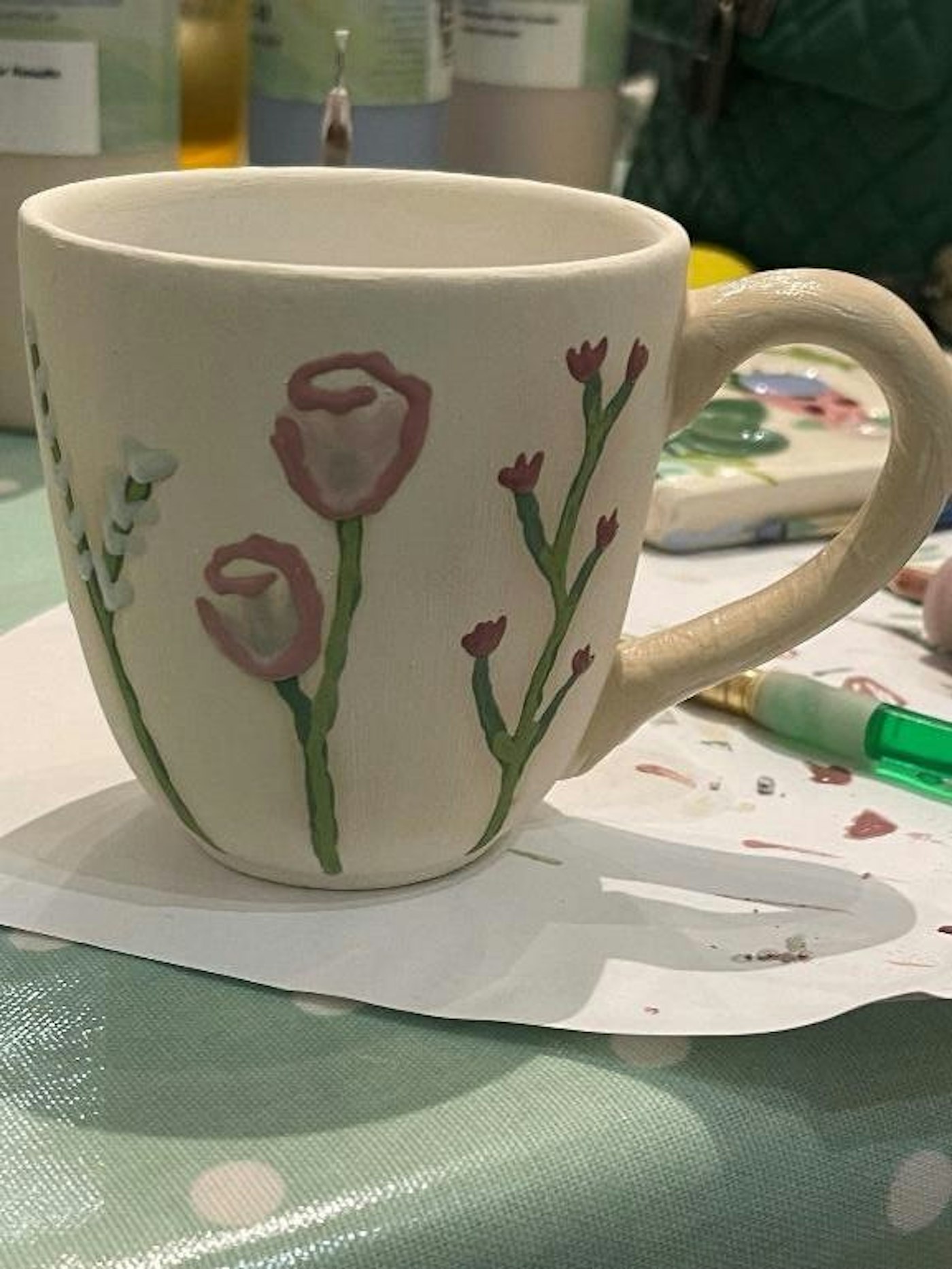
“I think happiness comes from within yourself and not from other people.” – Fatima*, late 20s
Fatima, a marketing manager and self-confessed globe-trotter approaching her 30s, relishes engaging in exciting pursuits abroad as well as spending time with family and friends at home.
She has been on the search for a good, decent man for a few years and feels repulsed when thinking about some of the shocking experiences she has endured from being on Muslim marriage/dating apps – she doesn’t feel they are very halal at all and she has come across some men who make it obvious that their intention is to sleep around which, of course, is not something she wants.
She describes herself as “just floating along the sea of online dating.” This has, however, been met with challenges within the family. Echoing a similar sentiment to Shabnam, she is not too fussed about having children – a view which has been met with shock/ horror by family members – because she believes children are a gift from Allah and it is His decision if she will have them or not.
Being single has allowed Fatima to have her own routine and be able to look after her body and health. “Whenever anyone asks me why I’m not married, which they do a lot, I just say that they haven’t made enough du’a for me. That normally keeps them quiet.” Being able to lean on friends and have deep, long conversations with them has made Fatima’s faith stronger. This has given her the time to reflect on and appreciate the little things.
“I think we get pressure to have this perfect life; marriage, kids and a white picket fence, but life isn’t like that. If we’re always striving for something that isn’t in our control, then we won’t ever be happy, so I don’t strive for that. I’ll tie my camel but I’m not going to stay up all night to make sure it hasn’t run away!”
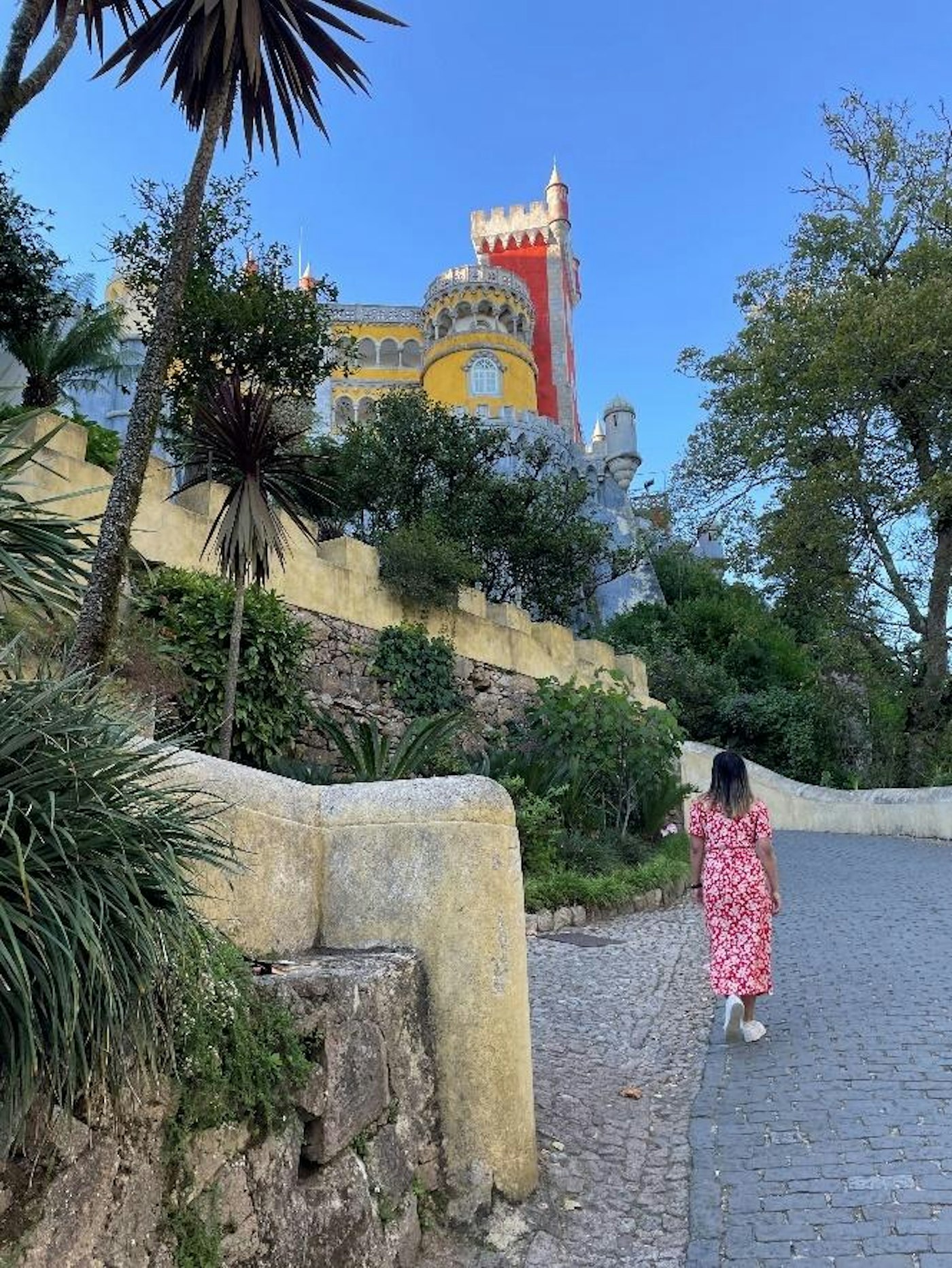
“I appreciate the space and time I have to figure out my purpose and the work I have been able to do for my community, both creatively and spiritually.” – Sakinah, mid 30s
34-year-old musician and performer, Sakinah, describes her singleness as a journey of highs and lows, “It is about accepting that what Allah has planned in my life is best for me, and not thinking that the grass is greener on the other side, but to really enjoy the grass on my side and be present in this moment.”
While Sakinah has felt societal pressure to settle down, she admits that most of it has come from herself, “my only goal when I was 18 years old was to be married and have children, so not achieving that has been hard to accept. I am having to change my purpose and goals in life. I am figuring out ways to plan for my future, to care for myself and support my parents, without having to wait for a man.”
There is an emotional strain of being unmarried which she has found very difficult and weighty. Sakinah knows of people who have left Islam due to their struggle of finding a partner. She thinks it is easy to reduce that down to something shallow and tell people it’s not a big deal, but in a society where we are constantly bombarded by relationships, this can really add to the feelings of loneliness and rejection.
“One week, I’ll love being single and feeling happy to be by myself where I can do what I want whenever I want, but another week I’ll be crying because I’m feeling sad and lonely, so I then need to sit through that emotion and wait when I’ll be feeling like a happy and independent woman again. And sharing this rollercoaster of emotions with others, especially if they are married, can be difficult.”
Being a solution-based person makes it additionally hard for Sakinah to deal with the fluctuation of emotions. Coming from a first-generation Caribbean convert family living in the UK, there are no specific cultural traditions on finding a partner: there are no ‘aunties’ or ‘CVs’, leading her parents to create their own. For example, instead of a traditional British white wedding dress, her mother stepped into their own Caribbean Muslim culture by choosing to wear a green dress on her wedding day, and her elder sister followed suit.
Furthermore, as a Black Muslim woman, Sakinah is a minority within a minority which means that she has faced racism and anti-Blackness which has impacted her search for a partner. “You are welcomed into the Muslim community, but when it comes to marrying it is very different. There is an added layer of trying to find an individual and their family who is okay with your race and skin colour.” Additionally, belonging to a convert family means finding someone who will be ok with mixing with wider family members who are not Muslim, which will mean sometimes attending gatherings that might have free mixing and alcohol.
Due to these struggles, Sakinah ventured out of her comfort zone and tried Muslim marriage apps. She gave herself 40 days to try it out, but she only lasted a week. She is comfortable in her own skin and is happy with who she is but “the apps weren’t for me, they completely crushed my confidence and how I viewed myself. I started questioning and doubting myself and so the question is, how do you actively find somebody when you are older, while Muslim men are looking for younger women (under 30 years) and they want children?”
Sakinah highlights the challenges of attending Islamic events that usually centre married women and their rewards for being in service to their families, which can sometimes leave single Muslim women feeling isolated. She advocates for spending time with Islamic teachers who don’t tie roles, responsibilities or faith solely to marriage and allow you to lean into being unmarried. Grateful for a supportive community of single sisters, Sakinah embraces her singledom, using the opportunity to work on herself, both spiritually and emotionally, striving to be the best servant of Allah.
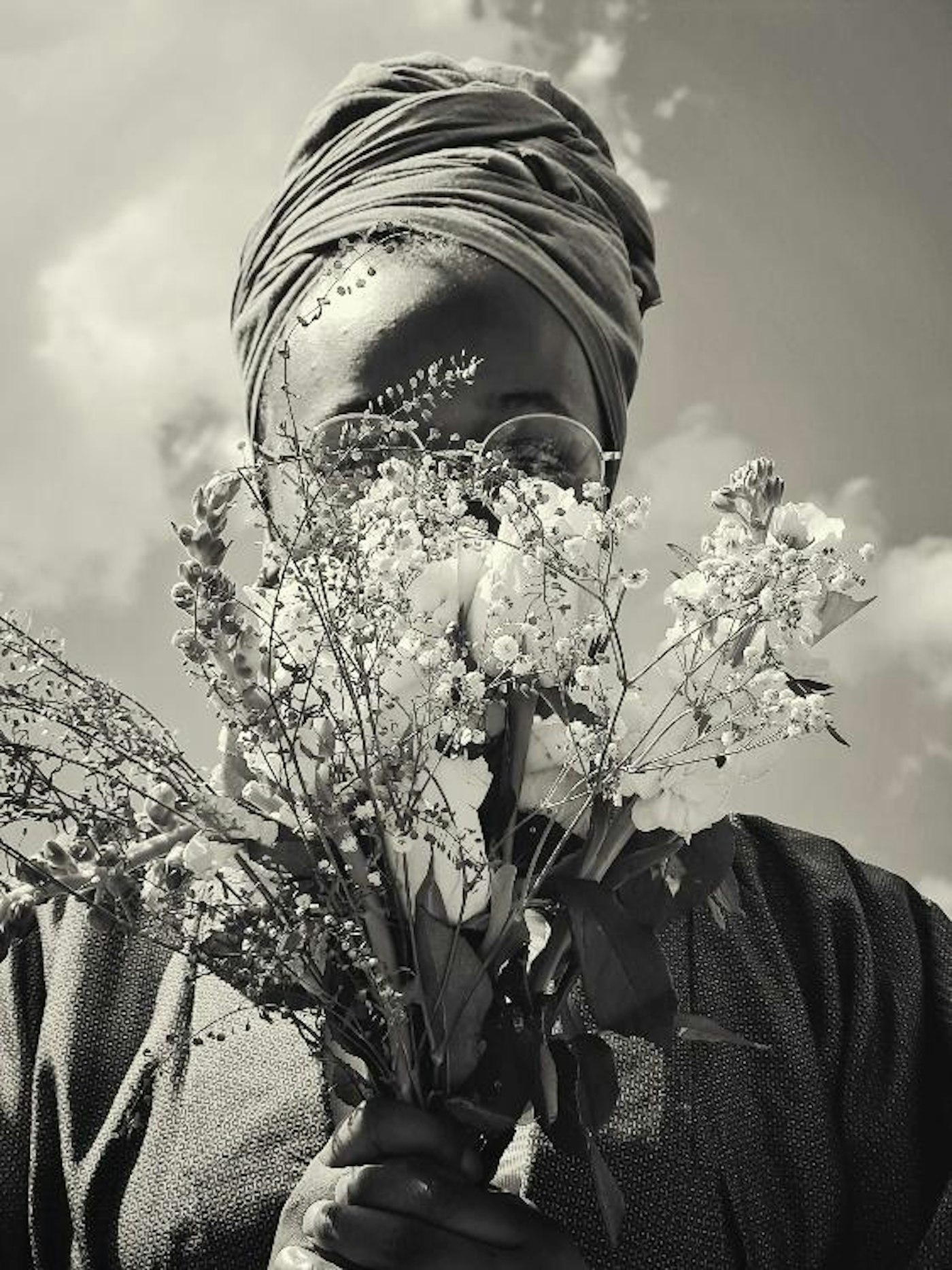
“People see me as vulnerable and tell me not to worry about not being married yet, but I’m not even worried! I believe Allah opens doors for you when the time is right.” – Yusra*, late 30s
Yusra is a teacher in her late 30s who has seized her single life journey with both hands. “Everything is up to Allah. I’m enjoying my single, happy life. Seeing some of the unhappy marriages around me, I don’t feel like I’m missing out on much. It’s like people don’t want me to lead this joyous life!”
Even though there are times she wishes for her own space, living with her parents and her brother’s family has been a wonderful experience. She has the blessing of a wholesome Islamic environment, whereas she knows some other families who are deprived of that.
One unexpected challenge of single life has been the negative reactions of some married Muslim women to Yusra’s lifestyle and hobbies. Notably, she has achieved a 1st Kup in Taekwondo which is the advanced tag before getting a black belt, earned medals in archery and long distance running, and is an avid baker! Yusra attributes this negativity to these women’s challenges in making time for personal development, before and after marriage and having children. She feels like people have convinced themselves that others have it better because “as humans, we are never happy.”
As a self-proclaimed bookworm, she finds solace in the stories of Jane Austen and the Brontë Sisters, realising that women of all cultures have shared similar struggles;“There will always be people who will look down at you for not being married but life is too short and we have put too many obstacles in our path so we need to remove these.”
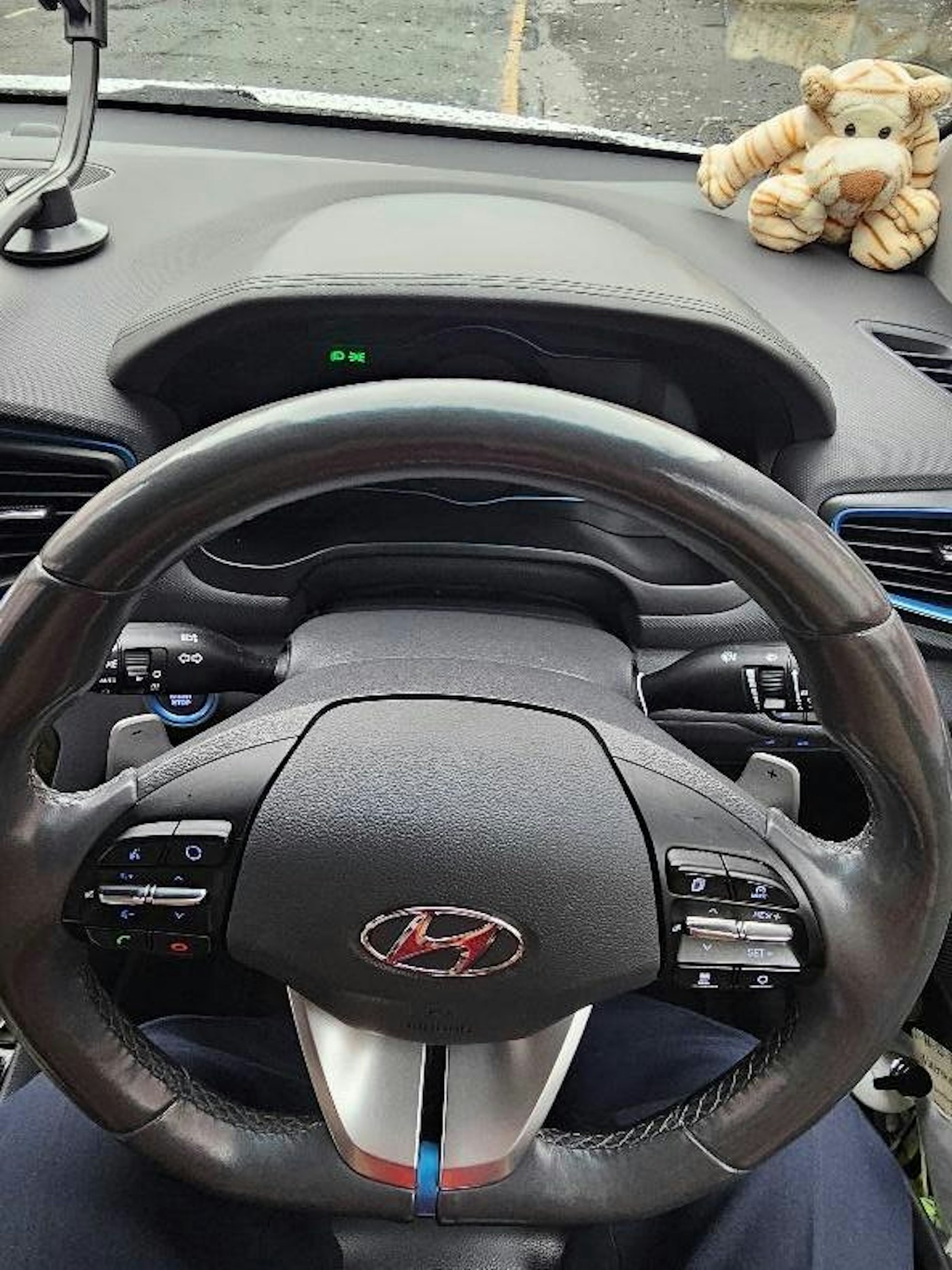
“It has been transformational, I have discovered layers of strength and confidence since becoming single.” – Heba*, early 40s
42-year-old mother of two, Heba, got divorced in 2020 during the Covid pandemic. There was a lot to process, especially as an immigrant without a family support network in the UK, but she quickly learnt to adapt. “I have no problem being single, it is just how different people react to it. Single mums tend to be fine, but other women come across very judgemental and the comments can be quite overwhelming to deal with.”
Having been single for a few years, Heba realised that she was locked into a mother-wife archetype and needed to make time to be herself outside of that parameter. Going on long walks, meeting friends at cafes, immersing herself in books – all have helped her to grow in confidence and gain a more in-depth understanding of life and even of herself. She has an increased sense of independence and has developed a proactive ‘I can do it’ attitude.
As a single mother, she feels a stronger sense of closeness with her children because she gives them one-to-one quality time, which perhaps had not been a priority when the caregiving responsibilities were shared within a marital partnership. Nonetheless, single parenthood has not been without struggles, “there are suddenly all these rules which feel alien.” Added to this, is dealing with the financial responsibilities, but Heba is back to work and learning to manage this well.
Affliction is what led Heba to have complete reliance on Allah and she now aspires to have a continuous, strong connection to Him. “Faith has been the only rope I cling on to during adversity.”
“Relationships don’t end suddenly, they deteriorate over time, and I know now what everything costs, including relationships.”
When divorce happens, Heba feels time is needed for reflection and improving oneself. She has learnt to be a better communicator, be more open and has matured as a result of her experiences. She has become better at discerning what society promotes vs. what works better for individuals within their own context. She feels more grounded.
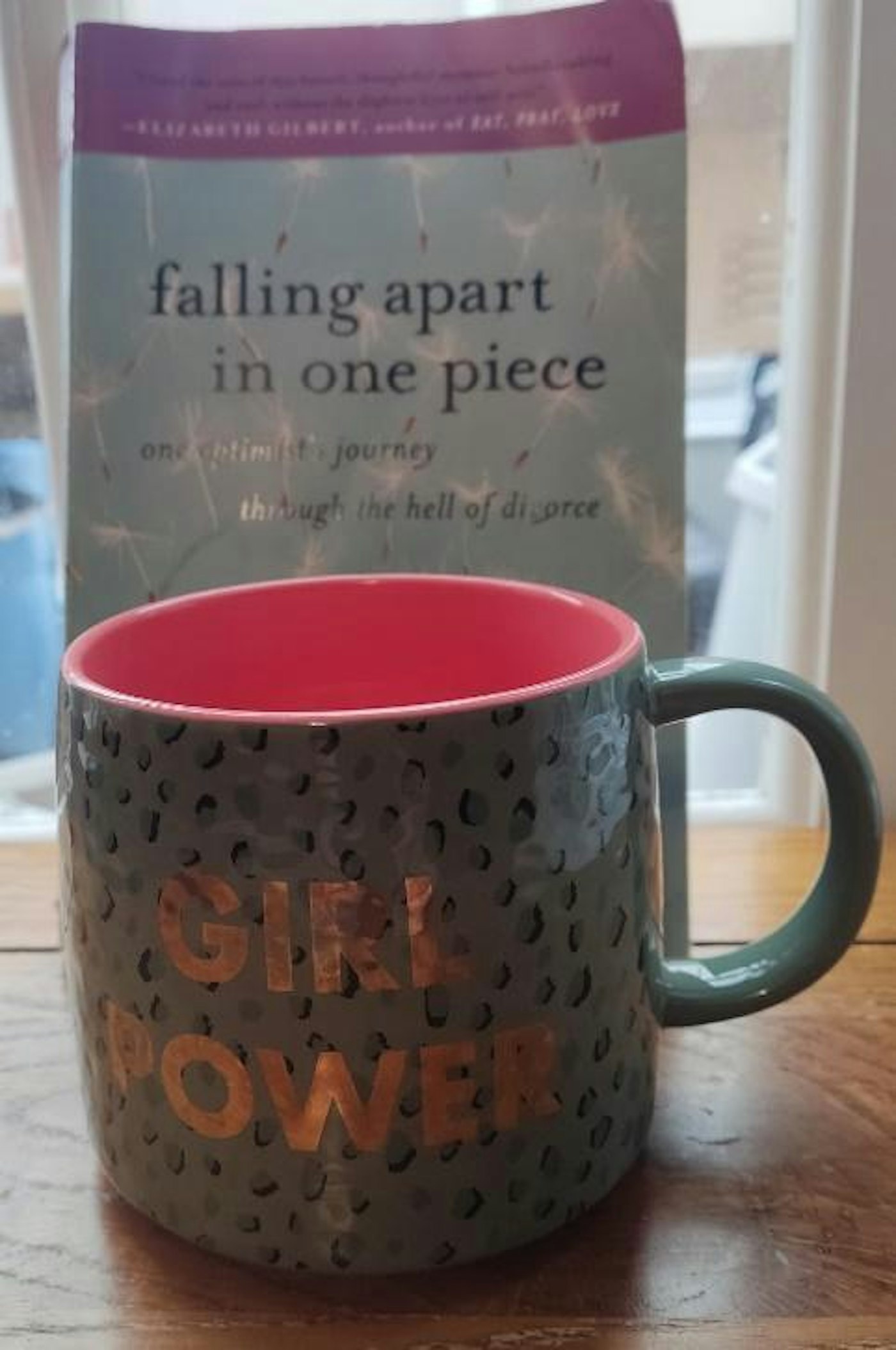
“Embrace healing & loving yourself.” – Aisha*, mid 40s
Aisha describes herself as a solo mum and artist. She is in her mid-40s and has been divorced for a decade. “I am finding my space in this new era of my life and each year is bringing new horizons and resilience.” She doesn’t find the term ‘single’ very helpful because she feels it is a label which encourages an unnecessary assumption that you are incomplete. Aisha loves walking and going on hikes and she makes time for solo travel and other hobbies.
Aisha suggests that marriage can be beautiful if you have the right companion, but many women have been thrown into the deep end of the servitude of marriage and motherhood. They are paddling to stay afloat, so to be able to put themselves first is a liberating and courageous act, “if you find peace inside yourself then you can give that to someone else. It is important to heal from trauma and not to tolerate disrespect.” Despite these transformational experiences, Aisha senses the pressure to find a companion. Unfortunately, however, Aisha has noticed “a predatory nature of certain ilk of Muslim men that assume because you are a divorced solo parent that you are easy prey. Then there are practising Muslim men who groom women with the polygamy card.” It is also disappointing when older women imply that it will be hard for her to remarry because she has children and is ‘at the bottom of the heap’.
Regardless of such poor attitudes, she does not allow herself to be hardened and enjoys her independence. She is practising self-love and compassion and refuses to conform to the idea that being unmarried means she is broken. There are many unapologetic divorced Muslim women who are successful and happy in their lives so these conversations should no longer be a taboo. “I know what I want and what gives me peace. Of course, I do hope that I find my happy-ever-after with someone who makes me laugh and we can grow young together, but deep down I’m not in a rush. I don’t want to get married to get divorced again. I want to pace myself and if it’s meant to be then it will happen.”

“The journey of self-love and personal fulfilment is far more rewarding than conforming to societal expectations.” – Samara, early 50s
Samara is a proud 50-year-old mum of three daughters, a keen hiker, mountaineer, travel enthusiast and foodie. She lives between the UK and UAE and “loves a full fridge and a full house!”
Since her divorce was finalised in December 2022, Samara has embraced her newfound independence; “It feels daunting yet liberating to navigate life on my own.” She had been the sole provider for the last 15 years so not much changed for her in that regard, but there was a realisation that she had felt like a ‘single’ parent for a long time already. She appreciates the opportunity to focus on herself and her wellbeing, and she is excited about the positive changes ahead.
Samara holds on firmly to her genuine friends who uplift and support both her and her daughters. She is still healing and actively working on improving herself. She is making time for new activities such as mountain climbing and hiking, and to do more charity work by currently fundraising for Palestine by embroidering denim jackets with Palestinian symbolism which will then be auctioned. “This is the kind of work I would like to do all the time but at the moment I have to earn a living to look after myself and my girls.”
She does sometimes feel a little lost however, especially when it comes to decision-making, but this is mostly due to past patterns of needing permission or seeking validation from others. Making informed choices has made Samara feel like she can breathe again, “I am learning to be with myself instead of looking for that in someone. If it’s meant to happen, it will. I don’t want to miss out on life because I am too busy waiting for someone to come into my life. Now it feels more like a never-ending feeling of “it’s my money and my life, I can do whatever I want with it!”
Despite not growing up in an overtly religious household, Samara has always been aware of her identity as a Muslim. “My approach to practising and imparting Islamic values to my daughters comes from a personal conviction—a desire to belong to something greater, the Creator of the heavens, the earth, and all of us.” Divorce was a last case scenario for Samara having stayed married for 25 years and she knows she made the right decision even if her mother did not agree, “I deserved better and I still believe I do. Only my girls and I were living it, so no one has the right to judge except Allah.” It is through adversity that her faith has grown stronger, particularly when it became apparent that not everyone sticks around during difficult times.
“While friends and family may be there temporarily, the sustained support needed to overcome the depths of depression often rests with my connection to Allah through Salah and Tawakkul in His plan. The two factors that influence my single life are my faith and my gorgeous girls.” This pushes her to better herself, to be open and honest, and to give love with sincerity.
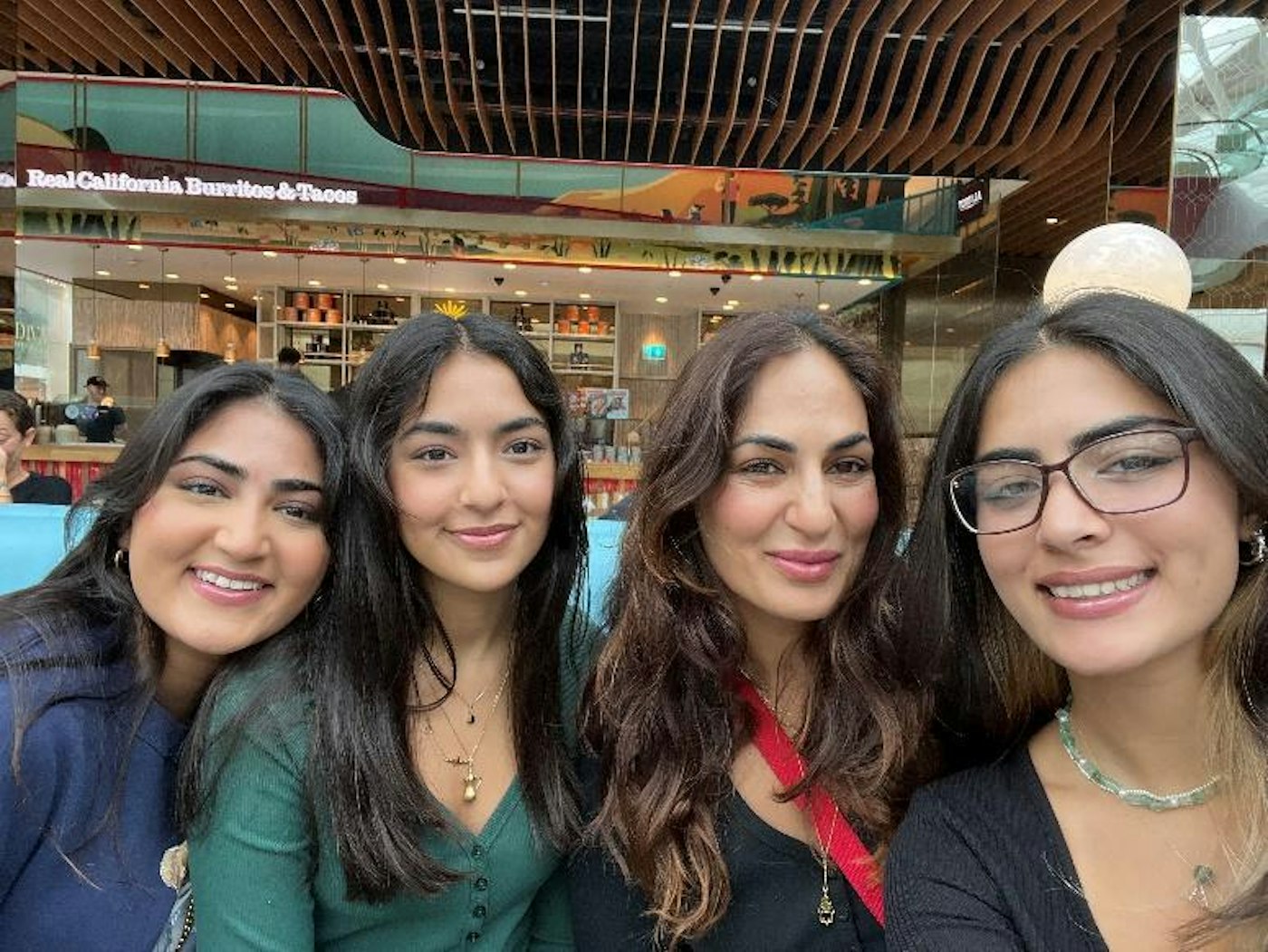
watch TV together with no arguments or fights or negative energy.
Despite the alienation created by the societal expectations and pressures to be married, there is a shared and collective endurance by all the single women who were interviewed.
Chimamanda Ngozi Adichie writes in her book, ‘We Should All Be Feminists’ “Because I am female, I am expected to aspire to marriage. I am expected to make my life choices always keeping in mind that marriage is the most important. Now marriage can be a source of joy and love and mutual support but why do we teach girls to aspire to marriage and we don’t teach boys the same?”
Whether or not we ascribe to ‘feminism’ as a term, Adichie does give food for thought. Marriage is a highly recommended sunnah in Islam and we all have an innate desire to find our soulmate for companionship in this life, but if there is an imbalance in how commitment to marriage is prioritised, then this will inevitably influence the way we view single Muslim women and men.
There is also the added layer of not having a safe space to share raw and honest feelings about single life. All the women were grateful to have the space to share their experiences as part of being interviewed; they found the process both therapeutic and cathartic and it made them realise they have not had many opportunities before to express their unfiltered feelings due to the already judgemental attitudes. There definitely is a sense of conflict between accepting and embracing single life whilst also living with the contradiction of being made to feel inadequate if unmarried.
Being single is an empowering feeling which evolves over time – it may be something we actively choose, or it might be chosen for us due to our circumstances. Whichever it may be, it is evident that despite being in different situations, Muslim women who are navigating the journey of singledom share similar struggles of discomfort and judgement as well as experiencing feelings of both liberation and gratitude. They have reliance on Allah, understand the importance of leaning into vulnerability and celebrate all the moments of joy within themselves.
When asked what one word would sum up their single lives, they shared the following:
Liberation
Alhamdulillah
Gratitude
Freedom
Independence
Tranquil
Sabr
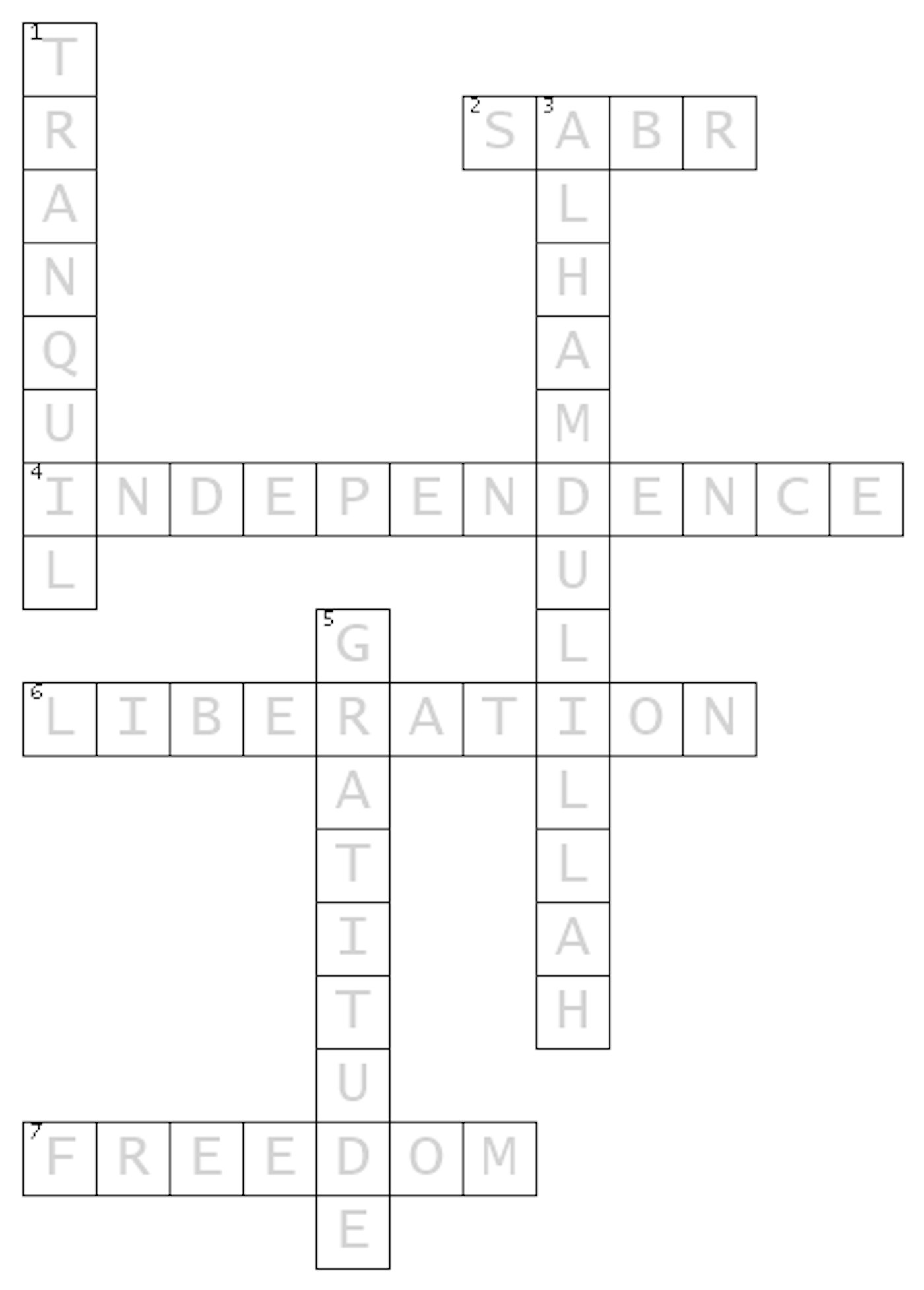
*False names have been used to keep the identities of the interviewees anonymous.
Imrana Mahmood
Imrana Mahmood is a Creative Producer committed to redefining the arts scene and passionate about working with communities at a grassroots level, with a particular focus on global majority voices. She is the founder of Dar Aminah Book Club and also hosts The Book Club Show on Inspire FM. Her previous projects include Beyond Borders and Echoes of the Diaspora, and she is currently working within the cultural education sector to improve access to the arts for young people. Imrana is a mother of two and in her spare time enjoys reading, watching movies and eating chocolate.